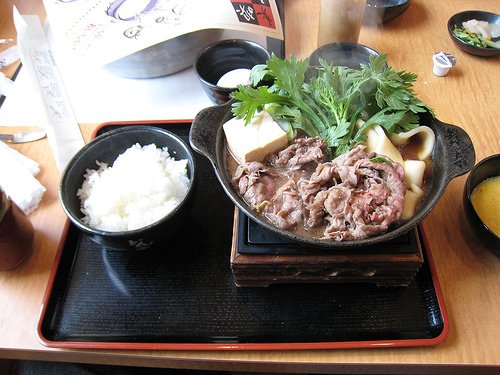I was making up some Japanese business cards for one of my employees yesterday, trying different layouts and fonts to see what looked best. As I worked on the design for the “name card” (as business cards are called here), something seemed wrong to me, but I couldn’t put my finger on it. Then it hit me: I’d left off one of the most important parts, the job title. Organization is very important in a place like Japan, and just as the entire country is ordered into prefectures, cities, towns and villages, with no unincorporated areas anywhere, people are generally expected to fit into pre-defined slots, e.g. programmer, graphic designer, accountant, city employee, and so on. Everyone must have an occupation associated with their name for people to know how to categorize them, and when proper categories aren’t available, allowances are made, such as the recent additions of sub-groups like “freeter,” a person who only works part-time jobs without ever officially joining a company as a full-time employee or starting a career; or NEET, a term for a young person living with their parents and “Not in Educational, Employment or Training,” i.e. loafing and surfing the net all day. When I started J-List, I encountered some opposition from my wife’s family, who didn’t think it was a good idea to trade a secure career teaching English for the uncertainty of starting a business on the Internet. I realized later that this was because the concept of an “entrepreneur” was not defined as a valid category in their minds, and they didn’t know how to feel about a son-in-law who didn’t fit neatly into one of the pre-defined slots…which suited my American sense of individualism just fine.
Any way you look at it, English is a convoluted language, with grammar and vocabulary taken haphazardly from many sources, including Olde English, French, Greek, Latin and listening to young people these days, Japanese. The Japanese language is much the same, originally based on the indigenous (pre-6th century) language of the Yamato people dwelling in the Nara Valley, influenced by 1500 years of kanji and 250 years of national isolation, and then exposed to a huge amount of foreign loan words in modern times. There’s a category of four-syllable (or four kana) words used here that are so pregnant with meaning they boggle the mind, and as is often the case with nihongo, you can’t ask yourself why they mean what they mean but must instead just accept them as gestalt units. First is sekkaku (seh-KAH-koo), which carries the implication of having gone to great trouble to do something for someone only to have them not appreciate your efforts. Another fun word is yappari (yah-PAH-ree), which means “just as I thought” or “as I expected” or “Aha! I knew you’d be trying to peek into the girl’s bath!” When you learn something that surprises you, you might use the phrase naruhodo (nah-roo-hoh-doh), which can be translated as “wow, I didn’t know that” or “I see your point,” and on a TV drama, a character picking up some information from subtle, unspoken clues might mutter this word to themselves as a signal to viewers that he’d found another piece of a puzzle. Finally there’s tonikaku (TOH-ni-kah-koo), which just means “at any rate” “regardless of that fact” or just “anyway.” When my bilingual son was growing up, he got confused and accidentally combined English and Japanese stems to create the hybrid word “toni-way” (tonikaku + anyway), which has been a running joke in our family ever since.
One of the first things I did after arriving in Japan back in 1991 was hop on a train to Tokyo to explore Shinjuku, one of the most famous parts of Japan’s sprawling capital, which I’d only glimpsed through the window of manga and anime until that time. One of Tokyo’s 23 wards, Shinjuku is a bustling mini-city unto itself, with sprawling department and electronics stores, restaurants and drinking establishments. Because it happens to contain some of the only stable land in the earthquake-prone area, virtually all of Tokyo’s high-rise buildings are located in Shinjuku, including the monstrous 48-story Tokyo Metropolitan Government Building (Tokyo’s “city hall”) and virtually everything seen in the film Lost in Translation. Shinjuku Station is the busiest in the world, with a mind-boggling 2 million passengers passing through each day as they rush to get to work or home. The station is so massive that the only thing to do is divide Shinjuku into quadrants based on what train exit you’re using, e.g. take the east exit to score some good Indian food, or the south exit to get to that one good bookstore, and so on. Shinjuku’s Kabuki-cho section is one of Japan’s leading drinking districts, too, and a complex economy has formed around the thousands of tired salarymen who get rid of their daily stress there, throwing some back with co-workers before heading home.















